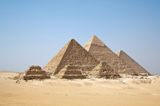Reciprocity of humankind is a radical anthropological characteristic.
It means a relationship of mutual dependence or
interaction between human beings. When persons or groups
give or allow something to others the exchange of
something between people or groups of people take place.
No one can become a human
being alone;no
one can survive as a real human being with rationality
alone; no one can even think as a human being without
the interaction with other people synchronically or
diachronically.
Reciprocity as a human value has become more important
in the process of development of human society,
especially in the era of globalization.
Challenges and problems faced in this era need
deep investigation from many perspectives of philosophy,
anthropology, politics and theology and religion.Such
issues related to reciprocity should be studied as the
role of reciprocity in the relationship between
individualism and collectivism; the
nature and characteristics of human reciprocity; the
dimensions and levels of human reciprocity; reciprocity
between people or groups
of people in
the spiritual and creative levels; reciprocity in
different cultural traditions and believes; reciprocity
in the relationships among countries, peoples and
civilizations in
these global times.
What is more important is that we are entering into the
age of information which brings another kind of
civilization: information civilization. This is very
different era in the development of human civilization,
because information is different from physical matter
and energy. The main feature of information civilization
is “sharing”.
Information is
not only sharable, but shared differently from other
objects. Its sharing effect is totally different from
that of matter and energy. People are agents in the
sharing of information civilization. The more
participants who share with, the more information they
get from their sharing. Sharing
is one of main characteristics of reciprocity of human
kind.
Sub Themes:
1. Reciprocity as a radical
anthropological characteristic.
2. The nature and characteristics of human reciprocity.
3. The dimensions and levels of human reciprocity.
4. Sharing as a main
characteristic of reciprocity as well as information
civilization.
5. The role of human partners
to play from the view of reciprocity
of human being as agent.
6. Reciprocity between people or groups
of people in
the spiritual and creative levels.
7. Reciprocity between people in different cultures and
believes.
8. Reciprocity between countries in
the era of globalization.
9. Reciprocity as a human
value between individualism and collectivism.







